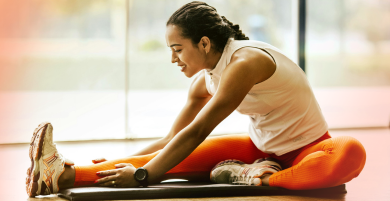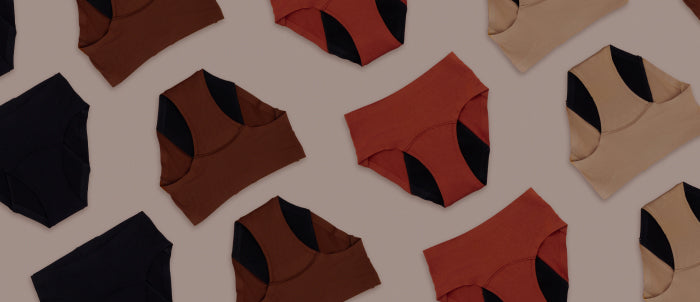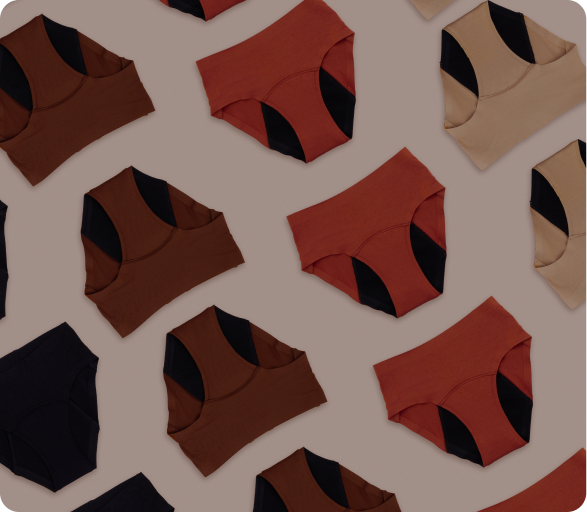Going to the gym during periods or exercising during periods has many benefits. However, working out on your period often feels like a tug-of-war between the temptation to skip and the drive to stay on track. The good news? Regular exercise like stretching, yoga, walking, or doing gym activities like aerobics can help reduce period pain by 25%, improves mood, and help you sleep better!
Let’s debunk the myths holding you back from working out and take a look at the benefits of staying active during your periods.
Impact Of Working Out During Your Period
Exercising during menstruation is often misunderstood, as many people think it will increase cramps and pain. However, working out can ease the common symptoms of PMS like cramps, bloating, and mood swings by improving blood circulation and releasing endorphins. Beware of fatigue or lower stamina caused by hormonal changes and blood loss which is why it is important to adjust the intensity of your workouts.
Benefits Of Low-intensity Exercises During Your Period
- When doing exercise in periods, opt for low-intensity cardio like starting your days with activities like walking or leisurely cycling. It helps you stay active, avoiding overexertion.
- Practicing yoga or stretching with poses like child’s pose, Cobra, and Cat-Cow are the best period time exercises, which help you ease cramps and relax your muscles.
- It’s better to do lighter weights that focus on high-rep exercises in the gym to maintain your routine without strain.
- Practicing pilates during periods reduces bloating, and improves mood by promoting blood flow and releasing endorphins. It’s a gentle, low-impact exercise that strengthens the core and enhances relaxation, which is ideal for handling period cramps.
Simple Yet Effective Tips To Exercise On Your Period
Stay Hydrated:
- Dehydration during periods can worsen cramps like bloating and constipation. Drinking about 8-10 glasses of water on your period is an ideal way to maintain hydration in your body. Research by PubMed declares that women who drank water only when they felt thirsty instead of maintaining hydration experienced severe menstrual pain in the first three days of the period.
Wear Comfortable Clothing:
- Opt for breathable, moisture- wicking clothing like cotton fabrics to prevent irritation when working out.
Pack A Pair Of Pants And Period Underwear:
- Exercise or working out during periods can make you feel like your blood flow is increasing with the movement your body undergoes.
- It’s important to use the right period product to provide you support and comfort as you try to exercise on your period. Opt for period underwear to avoid menstrual cup leaks or the bunching of pads as you try to stretch!
- Some women feel comfortable wearing dark-colored pants or carrying an extra pair of period underwear and pants, which is even more helpful for working out without feeling stressed about leakage.
Listen To Your Body:
- Adjust the intensity of the exercise based on how you feel each day.
- It’s important to warm up and cool down every day. Never miss these steps. It helps you avoid stiffness and cramps post-workout.
- Use a period tracking app to understand when you’re at your peak energy levels and when to dial it down. It helps to choose which workout suits your energy and balances your mind and body.
When To Seek Medical Help While Exercising During Periods
Talk to your doctor only if you notice below symptoms while exercising on your period:
- If you experience severe pain like intense cramps or abdominal pain that worsens with activity, it’s time to consult your doctor.
- When you experience excessive flow or sudden clotting during exercise.
- When you feel dizziness like feeling lightheadedness or loss of imbalance due to exercising.
- When you feel extreme tiredness, an unusual fatigue which is beyond normal period symptoms.
- When you feel pain or issues persistently even after you rest, then it might be a severe symptom that needs a doctor's attention.
Stay Active While Managing Your Menstrual Cycle
Maintain a balanced workout through your period by hitting a gym or doing it at home. It’s vital to understand how your body is responding to lighter workouts and intense ones. Although you feel energetic for a while, avoid overexercising. However, exercising during menstruation can ease symptoms and support overall health. There's no need to avoid specific activities unless pain or discomfort signals the need to reduce intensity. Don’t forget to prioritize rest.

































































